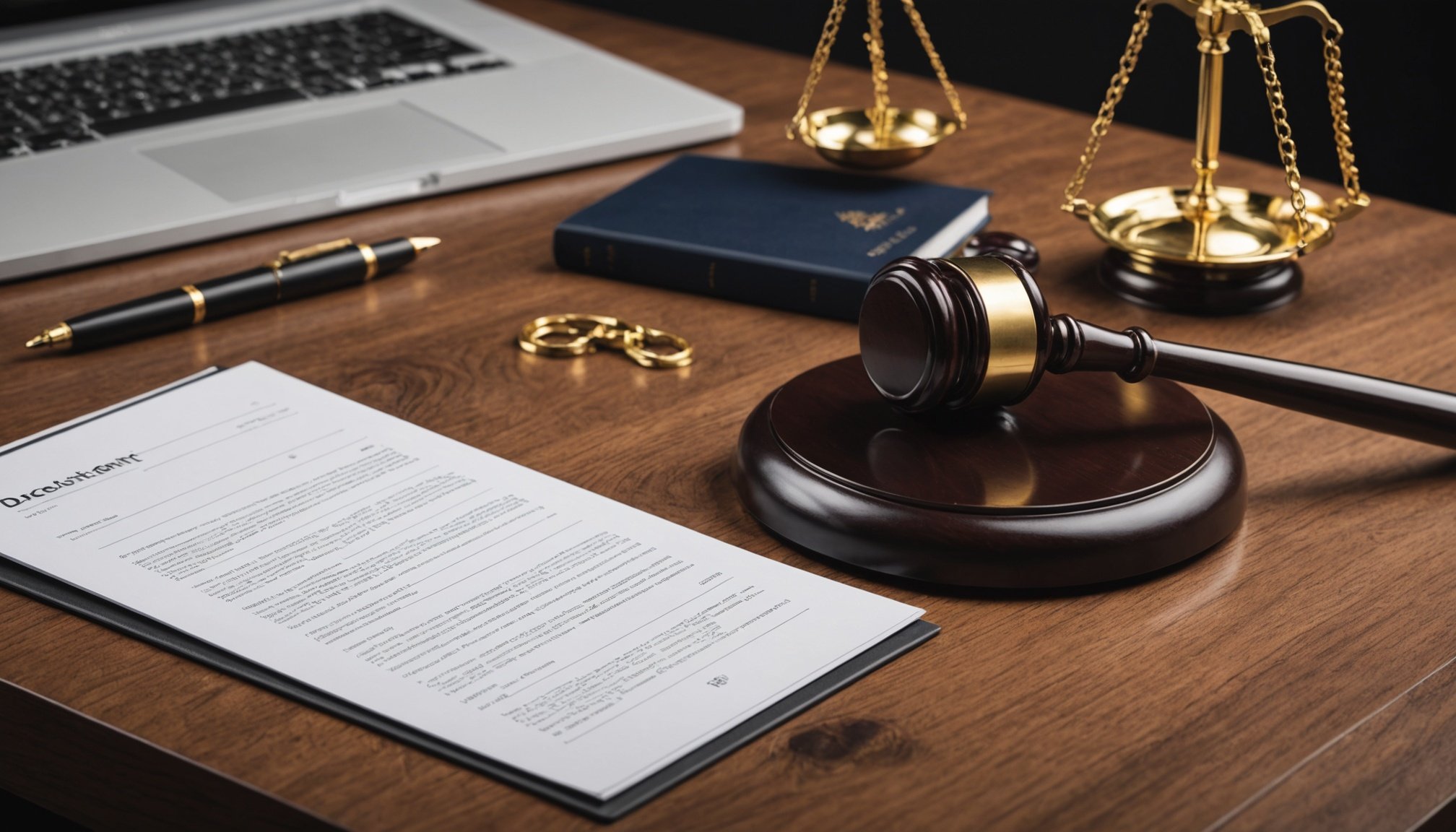Overview of Blockchain Technology
Blockchain technology is a decentralised digital ledger that records transactions across multiple computers, ensuring that the records cannot be altered retroactively. It operates on principles of transparency, immutability, and decentralisation, minimising the need for intermediaries. At its core, the blockchain is a series of blocks containing transaction data, each cryptographically linked to the previous one, ensuring secure, verifiable data ages.
Blockchain technology has demonstrated transformative potential across various industries. In finance, it streamlines transactions, enhancing speed and security. The supply chain benefits from increased transparency, reducing fraud. Additionally, the healthcare sector sees increased data integrity as patient records are securely shared between parties.
Also to read : Harnessing Customer Insights: Effective Strategies for Thriving in the UK SaaS Market
In the legal field, blockchain technology is poised to revolutionise the management of legal documents. By ensuring document integrity, it minimises fraud and error. Smart contracts, automatically executing upon meeting conditions, enhance efficiency, cutting costs and saving time. As this technology evolves, it may further transform traditional legal processes, presenting challenges and opportunities.
Current Applications of Blockchain in UK Legal Documentation
The use of blockchain applications in UK legal documentation is gaining momentum, offering a transformative approach to traditional methods. Historically, legal documentation relied heavily on paper-based processes, making them cumbersome and prone to errors. Integration of blockchain technology addresses these issues by providing a transparent and immutable record of transactions.
Additional reading : Revolutionizing University Admissions: Harnessing Machine Learning to Boost Student Retention and Tackle Dropout Rates in UK Higher Education
Case studies illustrate successful implementations across the legal sector. For instance, the UK’s Land Registry is exploring blockchain to streamline property transactions, enhancing both the speed and security of documentation. Similarly, smart contracts enable automatic execution of agreements, reducing manual interventions and potential disputes.
This shift brings several benefits. Legal professionals can ensure document integrity, minimising fraud risks. Moreover, efficiency is heightened as blockchain reduces the need for intermediaries. However, challenges remain in blockchain adoption, including technical barriers and regulatory concerns. Overcoming these will be crucial in fully realising the potential of this innovation.
By embracing blockchain solutions in legal practices, the UK is setting a precedent for other legal systems to follow. Such advancements highlight the importance of staying ahead in a rapidly evolving technological landscape.
Case Studies of Successful Implementations
Blockchain technology is transforming various sectors, including the legal field. Examining successful implementations provides valuable insights into its capabilities.
Case Study: Land Registry
The UK Land Registry is exploring blockchain’s potential by running a pilot project to streamline property transactions. The objective is to improve efficiency and security, reducing transaction times and minimising fraud risks by offering a transparent and immutable record. Initial results indicate a positive impact, with quicker processing and enhanced legal efficiency. The key takeaway is that blockchain technology can significantly improve property transactions, setting a precedent for other legal systems.
Case Study: Smart Contracts
In the legal context, smart contracts automatically execute when conditions are met. This automation reduces manual involvement and potential disputes. A real-world example in the UK involved a company using smart contracts for vendor agreements, which led to faster and more reliable transactions. However, challenges, such as coding errors and regulatory concerns, remain. These implementations underscore the need for meticulous planning and ongoing evaluation to harness the full potential of smart contracts in legal practices.
Challenges in Implementing Blockchain Solutions
The integration of blockchain technology into legal systems is not without hurdles. Blockchain challenges primarily involve significant technical complexities. Legal professionals often lack the necessary expertise to implement and maintain these systems, creating a steep learning curve. Moreover, legal implementation faces cultural resistance. Traditional practices are deeply ingrained, and shifting to digital platforms requires substantial change management efforts.
Operationally, law firms encounter barriers such as the high cost of technology investment and the need for continuous updates. Privacy concerns also arise; ensuring data security and confidentiality while using a transparent system like blockchain presents unique difficulties.
Regulatory hurdles further complicate adoption. Existing legal frameworks aren’t fully equipped to address the nuances of blockchain, leading to legal ambiguity. This can deter its implementation as firms weigh the potential legal risks and liabilities. Overcoming these challenges requires a careful balance between innovation and regulation adherence. Leveraging expertise from the tech industry, cross-industry collaborations, and effective policymaking are vital for navigating these obstacles and realising the benefits of blockchain in the legal field.
Practical Strategies for Integration
Integrating blockchain solutions into legal practices requires a strategic roadmap to navigate the transition effectively. Legal firms must first evaluate their current processes and identify areas ripe for blockchain adoption. From contract management to legal documents, potential applications abound, requiring tailored solutions.
To facilitate this shift, legal teams should prioritise client education and engagement. This involves clarifying the benefits and addressing any misconceptions. Regular updates and workshops can demystify the technology and foster trust in these blockchain solutions.
For a robust integration, firms should invest in legal practices that leverage technological expertise. Collaborating with blockchain technology specialists ensures the systems are designed to meet legal standards and client needs. Adopting a phased approach allows incremental implementation, reducing disruption and easing adaptation.
Key recommendations include:
- Assessing blockchain readiness in business processes.
- Training staff on new systems and their applications.
- Establishing a governance framework to oversee adoption.
By focusing on these integration strategies, legal entities can harness the transformative potential of blockchain, fostering innovation whilst maintaining operational excellence and client satisfaction.
Legal Implications and Regulatory Considerations
Adopting blockchain technology within the legal framework involves navigating various legal implications and adhering to blockchain regulations. Current legal systems are not always equipped to handle digital ledger nuances, leading to potential compliance issues. As blockchain introduces new contract forms like smart contracts, existing regulations must adapt to cover these decentralised elements.
Regulations vary significantly between jurisdictions, often leading to a lack of uniformity in legal interpretations. For example, the legal recognition of blockchain-based documents can differ, affecting contract enforceability and evidence admissibility. Legal professionals must therefore stay informed about regulatory changes and engage with policymakers to ensure that emerging legislation aligns with blockchain capabilities.
Potential risks include data privacy concerns, particularly with the General Data Protection Regulation (GDPR) implications for immutable ledgers. Legal entities must implement privacy-compliant mechanisms without compromising the transformation blockchain offers.
To mitigate risks and ensure compliance, law firms should:
- Establish legal teams that specialise in blockchain regulations.
- Implement robust data protection measures.
- Engage in continuous education on evolving blockchain-related laws.
Navigating these regulatory landscapes allows for more educated adoption of blockchain, marrying innovation with the required legal safeguards.
Potential Benefits for Legal Professionals and Clients
Blockchain technology offers significant potential benefits to both legal professionals and clients, primarily through enhanced efficiency and cost reductions. Automation facilitated by smart contracts reduces the need for manual oversight, streamlining processes and cutting down on administrative costs. This provides lawyers more time to focus on complex tasks that require human expertise.
Moreover, blockchain’s inherent transparency and security bolster trust in legal transactions. By ensuring legal documents are tamper-proof and verifiable, it strengthens client confidence in the legal processes. This is particularly important in transactions with substantial financial stakes or sensitive information handling.
Looking to the longer term, the transformation blockchain brings can foster more robust client relationships. The clarity and security offered by these technologies can lead to deeper collaborations and a better understanding between clients and legal entities. Ultimately, such benefits position legal professionals to adapt better to evolving industry demands, ensuring they remain competitive and client-focused in an increasingly digital world. Embracing blockchain can thereby not only secure operations but also build enduring trust and satisfaction with clients.










